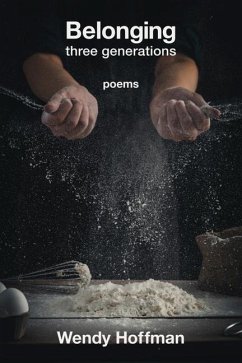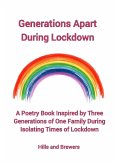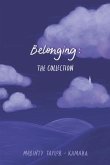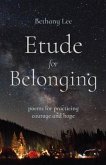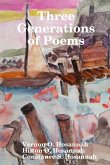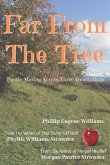In Belonging, Wendy Hoffman focuses on a familiar American dialogue-the relationship between the Old Country and the New Country. The dialogue, fraught with silence and shame, occurs over the course of three generations. Much of the dialogue is physical and literally the food the generations consume. In her baking and cooking the grandmother embodies much Old Country Lore. Some of that wisdom is passed on, and, inevitably, much is lost-the tragedy known as "Time." We see in Hoffman's metaphorical flights and blunt perceptions (see her remarkable poem "My Public Life as a Piano" that nods to Bruno Schulz) women thrashing and trying to gain some meaningful footing. The emotional consequences are typically devastating and that is the pity and honesty of this brave book. -Baron Wormser, author of The History Hotel In this moving memoir of three generations of women, Hoffman is able to conjure individuals and eras with single sensory details: we hear the "sigh" of the "empty little paper cups" as the box of chocolates is passed around, we lick the "slender cage-like bars" of the beaters, we feel the "knots of sand" squeeze between our fingers to make drip castles-and then the metaphorical significance sinks in. Even as these poems expose the "coffin" of marriage and its abuses from a dry-eyed stance, their imaginative leaps "cry for what might have been different." -Rebecca Starks, author of Fetch, Muse In the /Preface to Belonging, Wendy Hoffman's second poetry collection, the poet forecasts what will follow: "...my grandmother sixty years in her coffin/her rugged hands still rolling out strudel dough..." But she "whom they did not find fetching" will "untwist/their tangled thoughts." Hoffman does exactly that in her memoir-like poems. Grandmother Bella "had to leave Belarus, like all the Jews" whose hearts became "a tribe of terrorized birds." But the "sulfurous wounds" of the past reemerge in America. Despite moments of redemption, Hoffman concludes "I spent most of my life knowing the truth and being told something else." These poems celebrate her victory over that protracted deception. -Angela Patten, author of The Oriole & the Ovenbird and other books
Hinweis: Dieser Artikel kann nur an eine deutsche Lieferadresse ausgeliefert werden.
Hinweis: Dieser Artikel kann nur an eine deutsche Lieferadresse ausgeliefert werden.

